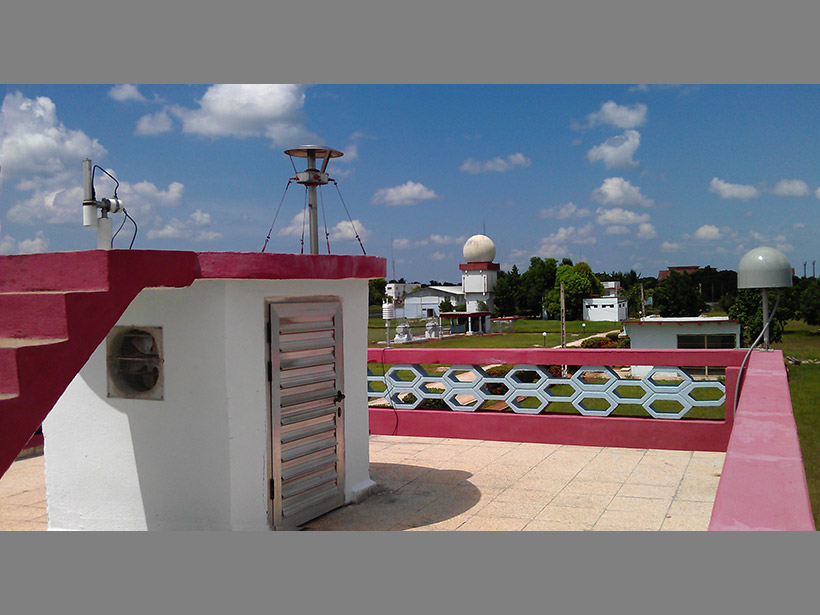Since 2013, the Future of Climate Extremes in the Caribbean (XCUBE) project has studied the vulnerability of the Caribbean to future climate extremes. XCUBE is funded by the Norwegian Directorate for Civil Protection on assignment of the Norwegian Ministry of Foreign Affairs. In November 2015, the Grupo de Óptica Atmosférica de Camagüey (GOAC) of the Cuban Meteorological Institute (INSMET) hosted an XCUBE workshop at which researchers discussed advances in bilateral scientific cooperation between Cuba and Norway on climate change.
At the XCUBE workshop, researchers discussed advances in bilateral scientific cooperation between Cuba and Norway on climate change.
Workshop participants discussed a recently published paper on sea surface temperature trends in observations and models for the Caribbean and the Antilles. A follow-up study looking at an intercomparison of station data and European Centre for Medium-Range Weather Forecasts Reanalysis (ERA)-Interim Reanalysis for Cuba was also discussed.
The results achieved are encouraging because they identify, quantify, and make preliminary attribution of ERA-Interim Reanalysis biases for Cuba. For example, the study found that 2-meter surface air temperature in the ERA-Interim model is warmer than observed. Further work will be conducted to compare temperature at mandatory levels from Caribbean sounding stations (based on the Integrated Global Radiosonde Archive data set) and ERA-Interim Reanalysis.
The results of the ongoing research are relevant for food security assessment in Cuba.
The workshop also included a visit to the Camagüey Meteorological Center, GOAC facilities, the National Radar Center, the Forecasting Department, and a local facility developed jointly by Norway and Cuba to conduct capacity-building activities. The Norwegian Embassy in Cuba sees the contribution of researchers from Camagüey as an important part of the XCUBE project; the workshop and field visits were key to the collaboration. In addition, the World Food Program representatives in Cuba have expressed interest in the results of the ongoing (and upcoming) research, which are relevant for their food security assessment in Cuba.
The lessons learned from the XCUBE project and the workshop discussions have provided the framework for a new proposal for the continuation of XCUBE cooperation, which will have a major focus on the hydrological effects of climate change and future food security for Cuba. Alan Robock from Rutgers University (New Brunswick, N.J.) will be leading the work package on food security with the cooperation of Roger Rivero Vega from INSMET/Camagüey, an expert on potential climate change effects on food production. We expect that this and the next phase of the project will enhance scientific understanding of climate variability in the Caribbean.
—Juan Carlos Antuña-Marrero, Grupo de Óptica Atmosférica de Camagüey, Meteorological Institute, Camagüey, Cuba; email: [email protected]; Michel d. S. Mesquita, Uni Research Climate and the Bjerknes Centre for Climate Research, Bergen, Norway; and Albeth Rodriguez, Grupo de Óptica Atmosférica de Camagüey, Meteorological Institute, Camagüey, Cuba
Citation: Antuña-Marrero, J. C., M. d. S. Mesquita, and A. Rodriguez (2016), Norway and Cuba evaluate bilateral climate research results, Eos, 97, doi:10.1029/2016EO051311. Published on 2 May 2016.
Text subject to Crown copyright.
Except where otherwise noted, images are subject to copyright. Any reuse without express permission from the copyright owner is prohibited.
Text subject to Crown copyright.
Except where otherwise noted, images are subject to copyright. Any reuse without express permission from the copyright owner is prohibited.

